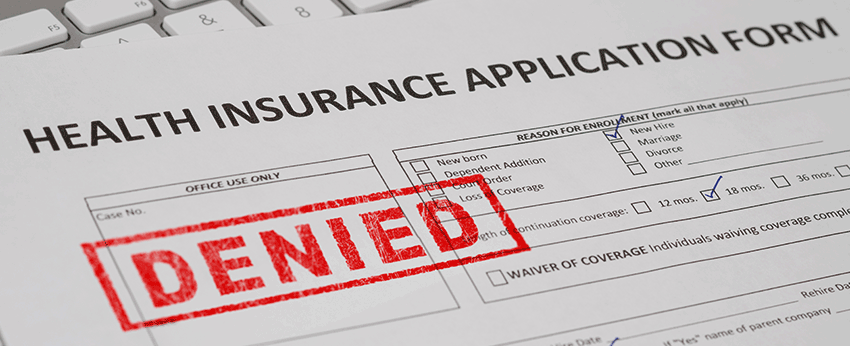At the basic level, COBRA (The Consolidated Omnibus Budget Reconciliation Act) provides continuation coverage of a group health plan when coverage would otherwise be lost. Simple, right? Deciding to elect COBRA coverage was only the first step. You also need a clear understanding of when and how COBRA coverage ends. Sometimes, COBRA coverage ends unexpectedly. Avoid being caught off guard by understanding these six reasons COBRA coverage ends early.
1) You enroll under another group health plan
COBRA is commonly used to provide continuous group health coverage between employment. You got the new job! The benefits are awesome. The only problem, you have a waiting period before you are eligible to enroll. So you enroll in COBRA to avoid a gap in coverage. Your benefits finally kick-in and you no longer need COBRA. You will need to notify the plan sponsor (or designated COBRA administrator) to terminate your COBRA coverage. Be sure to specify the date your new group coverage begins and COBRA coverage ends. Any overpayment of premiums is returned to you.
2) You failed to pay your COBRA premiums on time
If you intend to continue COBRA coverage, it is important to note the premium due dates and amounts. Late payments (or failure to pay COBRA premiums) may result in a loss of coverage. You are at the mercy of the plan sponsor. The plan sponsor determines if they will accept late payment and reinstate coverage after the payment grace period. To ensure continuous, uninterrupted coverage, always pay your premiums by the due date. When you enrolled in COBRA, you likely received a coupon book to easily track payment amounts and due dates.
Note on starting alternative coverages. If you terminate your COBRA coverage early, you generally won’t be able to get a Federal Marketplace plan outside of the open enrollment period.
3) You reached the maximum coverage limit
Federal COBRA is available for a minimum of 18 months following a qualifying event and may be available up to 36 months for certain circumstances (or under State COBRA rules). Make sure you understand when you have exhausted your COBRA coverage benefits and need to seek out alternative coverages.
4) You become eligible for Medicare
If you already have COBRA when you enroll in Medicare, your COBRA coverage usually ends on the date you enroll in Medicare. If you have COBRA and become Medicare-eligible, you should enroll in Part B immediately because you are not entitled to a Special Enrollment Period (SEP) when COBRA ends. Your spouse and dependents may keep COBRA for up to 36 months if certain conditions are met, regardless of whether you enroll in Medicare during that time.
Note on COBRA and Medicare coverage. You may also be able to keep COBRA coverage once you get Medicare for services that Medicare does not cover. For example, if you have COBRA dental insurance, you may be allowed to keep paying a premium for the dental coverage for as long as you are entitled to COBRA.
5) The employer stops offering coverage for all employees
If a group plan no longer exists for any active employees, there is no longer an opportunity for you to maintain coverage through COBRA.
This is where it gets a little dicey. Through no fault of your own, your COBRA coverage may be terminated early. The employer, from whom you are getting coverage, could stop providing coverage to all employees. The decision to stop providing coverage may be the result of a company closure, bankruptcy filing or just an evaluation of benefits offered. If a group plan no longer exists for any active employees, there is no longer an opportunity for you to maintain coverage through COBRA.
A group’s decision to stop offering a particular plan doesn’t lead to a loss in COBRA coverage eligibility. Qualified beneficiaries must be given the same opportunities as similarly situated employees to select a new plan. This means an employer can drop a co-pay plan in exchange for a high deductible health plan. The qualified beneficiary then has the same rights as the active employee to enroll in the new benefit offering.
Note of COBRA termination notices. In situations where COBRA coverage ends early, the employer must provide an early termination notice as soon as reasonably possible. The notice must contain the date coverage will terminate, reason for termination, and any rights the qualified beneficiaries may have under the plan or applicable law to elect alternative group or individual coverage.
6) Terminated coverage for cause
While an uncommon practice, plan sponsors may terminate COBRA coverage when a qualified beneficiary engages in conduct that would justify the plan in terminating coverage early. This provision is intended to provide employers with some recourse for abusive and deceitful actions of a qualified beneficiary, such as fraud.
What to do if you find your COBRA coverage ends early
 Stay calm and carry on! Always be aware of your rights and opportunities to elect alternative coverage(s) and you will get through any challenges that come your way.
Stay calm and carry on! Always be aware of your rights and opportunities to elect alternative coverage(s) and you will get through any challenges that come your way.
- Verify if alternative plans will be offered through the existing plan sponsor. If your existing plan is terminated, confirm if alternative plans will be offered during the open enrollment period.
- Enroll through another group plan, such as a spouse’s plan.
- Check out the Federal Marketplace (or your state exchange) during annual open enrollment. Open enrollment is available Nov. 1 through Dec. 15, 2017 for the 2018 Benefits Year.
- Get coverage in the individual insurance market. Find a local insurance broker or a private, individual exchange, such as ehealthinsurance.com.
If you have additional questions on COBRA coverage, you are encouraged to view our COBRA FAQs.
Resources



